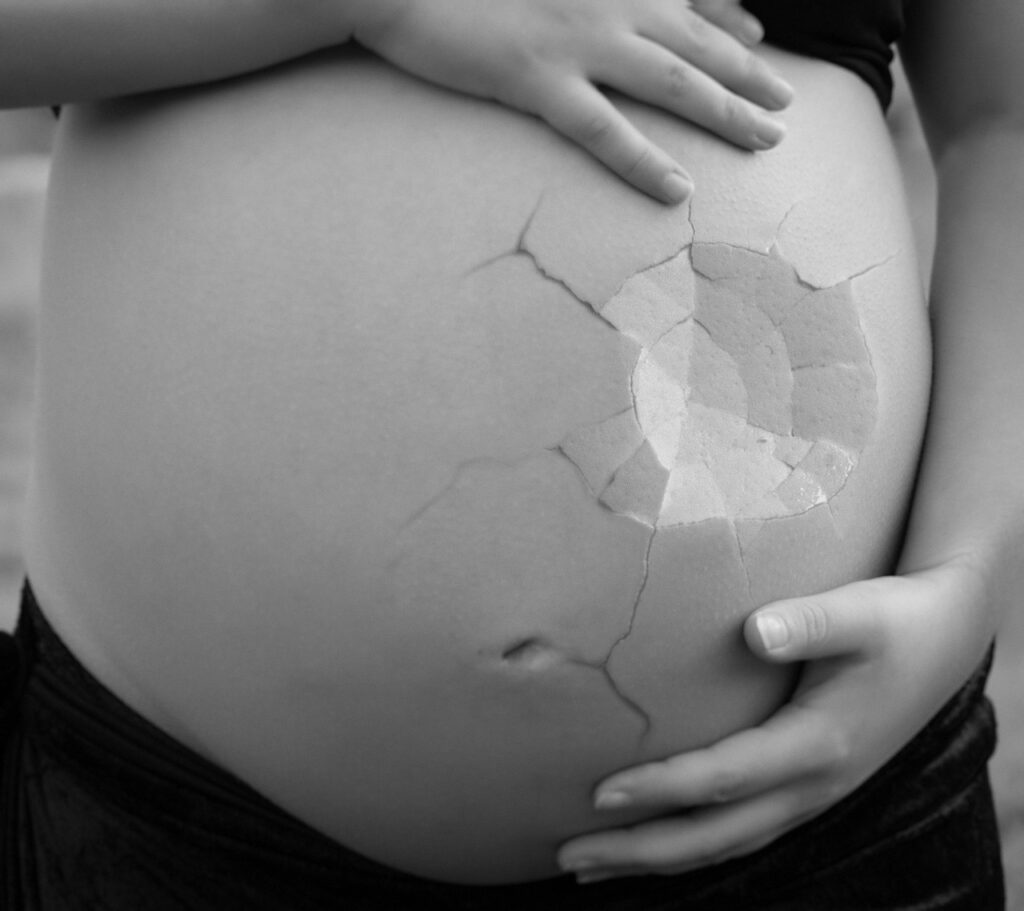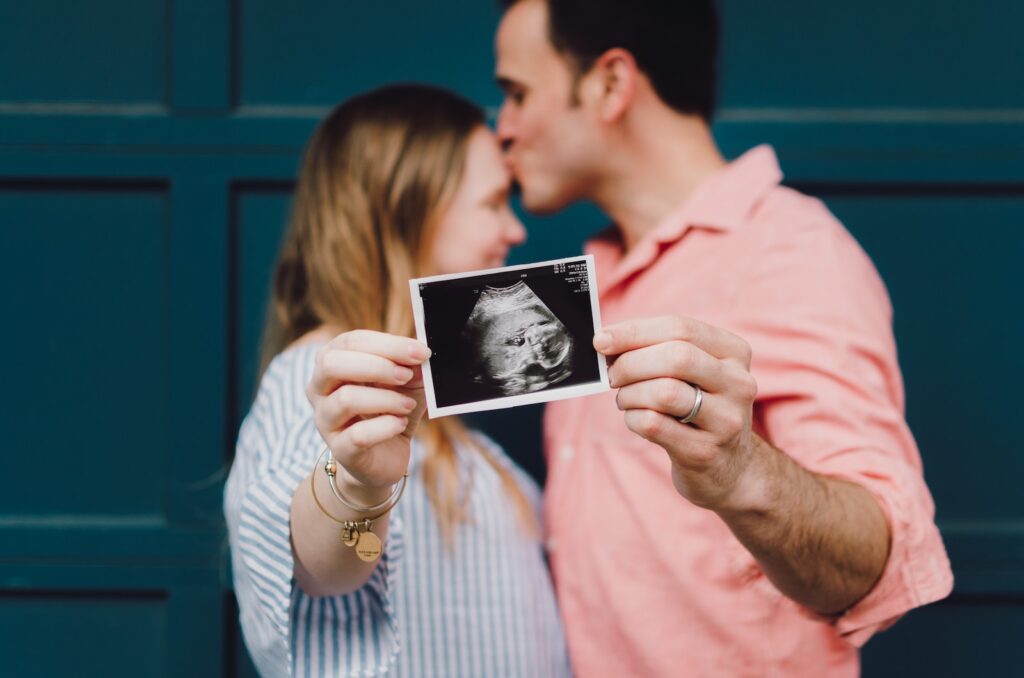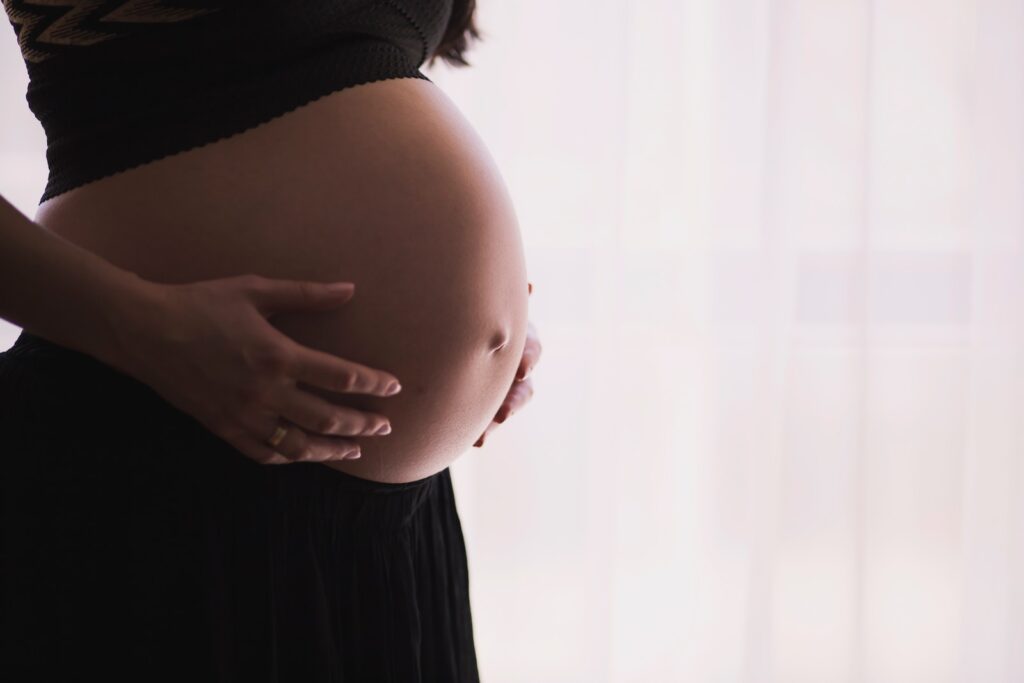Miscarriage is a devastating loss experienced by many individuals. Miscarriage is also called ‘Spontaneous Abortion’. As the term implies, miscarriage does not mean that you carried your pregnancy out incorrectly; rather, there are countless reasons why miscarriages occur, Countless causes of miscarriages. Some of which are beyond your control and others of which are due to the fetus’s restricted growth.
Although losses can happen before 20 weeks of pregnancy, most happen in the first trimester. No matter when it will occur the intensity of emotional and physical pain is the same. It happens with 10-25% of pregnant women. Some of the causes of miscarriage discussed below.
Here is a list of common Types of Miscarriages each representing some specific set of symptoms and circumstances.
Complete Miscarriage
It mainly occurs when all the pregnancy tissue is expelled from the uterus and the uterus remains empty. The cause of this miscarriage is genetic abnormalities in the foetus, uterine abnormalities, or hormonal imbalances as well.
A few signs include excessive bleeding, abdominal discomfort, and the passage of tissues from the vagina. Diagnosis can be done through Ultrasound and Blood tests. Both physical rest and emotional assistance are essential to overcoming this critical situation. It might become better in a few days or a week.
Incomplete Miscarriage
It occurs when some portion of pregnancy tissue like the fetus or placenta comes outside and some portion of tissue is left inside. This partial miscarriage is a cause of concern as if left untreated it can cause infections. Complete expelling of leftover tissue is mandatory. Diagnosis involves a Physical examination, ultrasound and blood tests.
Inevitable Miscarriage
When the cervix opens, some amount of tissue is released. Here pregnancy loss is ongoing and cannot be controlled. Embryo or tissue may not completely leave the uterus and that may cause persistent abdominal pain and bleeding.
Missed Miscarriage Or Silent Miscarriage
As the name suggests this type of miscarriage is quite different from the rest as in this type the embryo implants but fails to develop and eventually dies. The body does not recognise the loss and also doesn’t release the pregnancy tissue in this case. The release of hormones in the placenta continues so, no specific symptoms will be triggered and you may not even realize. Most of the doctors diagnose this while doing ultrasound by noticing no heartbeat in the fetus.
Once the miscarriage is diagnosed, pregnancy tissue will be removed through medical intervention or giving time to the body to naturally expel the same.

Threatened Miscarriage
This type indicates potential miscarriage but does not always result in pregnancy loss. The mouth of the cervix remains closed but a person experience vaginal bleeding which occurs during the first 20 weeks, which can be due to various reasons like maternal health conditions, hormonal imbalance, cervix incompetence or uterine abnormalities
Recurrent Miscarriage
It is defined as 2 or 3 consecutive miscarriages before the 20th week of gestation. Reasons which can be responsible for recurrent miscarriages are genetic abnormalities in one or both partners, Autoimmune Disorders, Thrombophilias (Blood clotting disorders) and environmental factors.
Other Problems can also cause Miscarriage or Early Pregnancy Loss
Chemical Pregnancy
During the initial time of pregnancy when the fertilized egg implants with the uterine wall chemical miscarriage happens, but it may not be noticed easily. This is called chemical miscarriage as this can only be detected through a home pregnancy test or blood test because it will show a rapid decrease in hCG hormone in the pregnant woman’s blood or urine. In normal times hCG level doubles every 2-3 days.
The only symptoms are slightly late or abnormal menstrual periods. This is a natural way to eliminate embryos with several genetic abnormalities. It happens in the first few weeks of conception and many women don’t even notice that they were pregnant.
Ectopic Pregnancy
This condition originates when the fertilised egg implants in the fallopian tube and not on the endometrium wall. This condition is very serious and calls for treatment and removal of tissue right away as this can create problems for the woman. Surgical treatment is required.
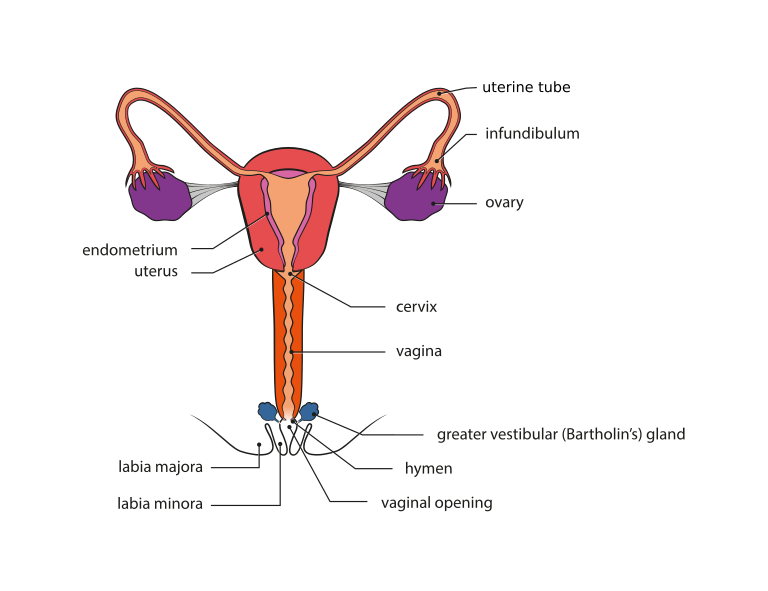
Blighted Ovum Or Anembryonic Gestation
It is also a type of early pregnancy loss and It happens when a fertilised egg is implanted and forms a gestational sac which grows but inside it, the embryo fails to develop. Vaginal bleeding and abdominal cramps are common symptoms.
Molar Pregnancy Or Hydatidiform Mole
It is a rare phenomenon of miscarriage. It is again of 2 types One is Complete Molar Pregnancy in which sperm fuse with the egg which has no genetic material which results in the growth of abnormal tissue.
In the case of Partial Molar Pregnancy which involves fertiliZation of egg by 2 sperms which leads to abnormal tissue growth.
Causes Of Miscarriage In Detail
Irregular Genes or Chromosomes
Very common causes of miscarriage is chromosomal abnormalities. In the Human Body, Every cell contains 23 pairs of chromosomes, a total of 46 Chromosomes which contain thousands of genes that have instructions for the specific features of our body like our height, our eye colour, our hair texture or colour and other things. Sometimes the instructions of gene changes are called Mutation and it is a harmful change of a gene which ultimately causes birth defects that can affect any part of the body.
At other times whole chromosomes change, people may have missing or duplicate chromosomes in their genome, or a part of a chromosome is missing.
Now these changes can cause chromosomal disorders like Down’s Syndrome (3 copies of chromosome number 21)
Some of the disorders are :
| Chromosomal Disorders | Monogenic Disorders | Multifactorial Disorders |
| Albinism | ||
| Fragile X syndrome | Cystic fibrosis | Autism spectrum disorder |
| Klinefelter syndrome | Muscular dystrophy | Alzheimer Disease |
| Turner Syndrome | Hypercholesterolemia | Coronary artery disease |
| Trisomy 13 | Hemochromatosis | Spina bifida |
| Trisomy 18 | Neurofibromatosis Type 1 | Diabetes |
| Triple- X syndrome | Sickle Cell Disease | Migraine |
| Tay-Sachs Disease | Arthritis | |
| Haemophilia |
Apart from genetic mutation, there are some environmental factors also that contribute to these changes. Some of them are Radiation exposure, chemical exposure, UV exposure from the Sun, Smoking Etc. For detail explanation click here
Placenta Problems
Problems in Placenta can occur at any time during Pregnancy. It is attached to the lining of the uterus and connected to the foetus by the umbilical cord. The placenta passes all the essential nutrients, blood and antibodies from your blood supply to your baby and waste products and vice versa. Few issues can arise in the placenta during gestation which can be one of the causes of miscarriage
- Anterior Placenta– You may find out this at your 20-21 weeks. This condition may not cause any complications, as the baby is cushioned by the placenta at the front side of your stomach so it is hard for a few weeks to recognise any movements. It also makes it hard for some procedures like Amniocentesis. If your baby remains in a back-to-back position during labour then you may have a chance to experience longer, painful labour, C-section or Assisted birth.
- Low-lying Placenta- Also known as Placenta Praevia is a condition when your placenta covers a part or all of your cervix. In this scenario, your doctor will suggest you C-section as the entrance of the uterus is covered by the placenta, so it is not possible to deliver vaginally. Also, there will be high blood loss during delivery by any mode. Smoking, cocaine, IVF, and a history of miscarriages can trigger the chances of the same.
- Placental Abruption- It occurs when the placenta separates from the wall of the uterus. It affects the development of your baby and can result in premature delivery.
Other placental issues are
- Retained Placenta- Normally after delivery of the baby, the Placenta also deliver outside of your body. Sometimes the part of the placenta is retained inside your uterus which can cause excessive blood loss. It is important to get it treated on time.
- Vasa praevia- It is a very rare condition in which the blood vessel which connects your baby with the placenta does not grow properly and can rupture during labour or before it which ultimately causes blood loss.
- Placenta Accreta– A condition in which the placenta is attached too deeply inside the uterus and cannot come out easily during delivery resulting in heavy bleeding.
- Chronic Histiocytic Intervillositis- In this condition mother’s immune system works abnormally and harms the placenta. Immune cells of the placenta form blood clots which may stop oxygen and nutrient supply to the baby.
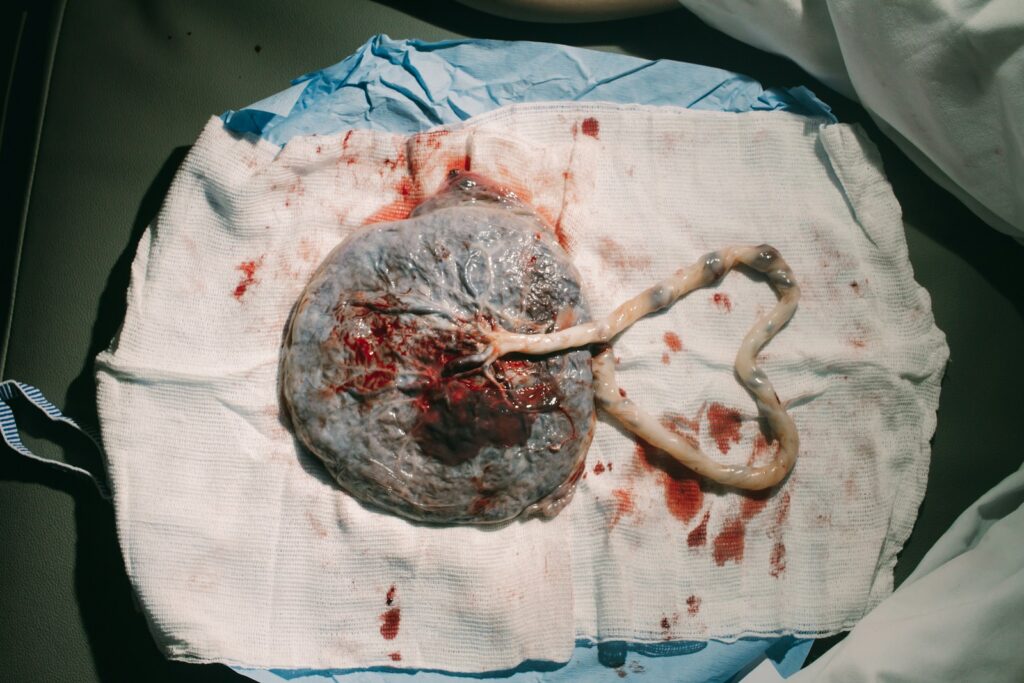
Womb structure
At the time of implantation, your uterus should be able to accommodate the fertilised egg and form the placenta in a few weeks. sometimes there are complications within the womb structure too like non-cancerous growth or Fibroids in the uterus. Fibroids may linked to the hormone estrogen and can be a one of the major cause of miscarriage. There are 3 types of Fibroids growing inside the womb-
- Intramural Fibroid Develop in the muscle wall of the womb.
- Subserosa Fibroid Develop outside the wall of the womb into the pelvis.
- Submucosal Fibroid Develop in the muscle layer and bulges into the uterine cavity.
ALSO READ: Foods to Avoid During Pregnancy
Maternal Health Conditions
Long-term Issues like high blood pressure, kidney diseases and diabetes, thyroid disease, and Lupus, can cause side effects on your pregnancy and the development of the foetus also. These are some severe illnesses which can cause a miscarriage in your second trimester.
Several infections like Bacterial vaginosis, HIV, chlamydia, Gonorrhoea, Syphilis, Malaria and Rubella can also be the underlying reason for miscarriages.
PCOS (Polycystic Ovary Syndrome)
It is a condition in which a woman’s ovary produces a large amount of Androgen hormone which is present in females in less amounts. Formation of numerous small cysts (underdeveloped sacs) in the ovaries in which eggs develop. Now these sacs are unable to release eggs, so ovulation does not take place, which ultimately causes infertility. Women who experiences PCOS are likely to have high chances (30-50%) of early pregnancy loss than the woman without PCOS.
Incompetent Cervix
In some women, the cervix is weak and it may be shortened and open in the second or at the beginning of the third trimester this can sometimes cause late miscarriage or premature labour. If you have a history of premature birth then you can be at risk of a weakened cervix.
The Age Factor
Another causes of miscarriage is Age of a pregnant woman. If a conceived woman is around 35 years old there will be a 15% chance of miscarriage. Chances of miscarriage will increase as your age increases. If a woman is pregnant at the age of 35-45 there will be a 20-35% chance of miscarriage in that case. In case of previous miscarriage history, there will be a 25% chance of another consecutive miscarriage.
Teratogens
It is something that can raise the cause of birth defects. they are the things to which birthing partners may be exposed like some medicines, toxic chemicals, viruses or bacteria, alcohol, tobacco, radiation etc. Teratogens can cause various abnormalities like cleft palate, heart defects, cognitive defects
ALSO READ: Pregnancy Shopping List
Miscarriage Treatment Options
If a person is undergoing complete miscarriage that is if all the pregnancy tissue is passed naturally from the body then you may need no surgical method or any kind of treatment as it will resolve on its own. In some cases, healthcare providers may suggest some medication if it is taking a long time to pass naturally.
Passing of the pregnancy tissue naturally from the body can associated with heavy bleeding, cramping, diarrhoea, and nausea. After you are done with it your doctor do an ultrasound to check that everything is ok.
If there is an incomplete miscarriage, then surgical methods will be followed in the treatment:
Dilation and Curettage
In this method cervix will open and with the help of an instrument, pregnancy tissue will be collected. It is performed under general anaesthesia.
Vacuum Aspiration
In this method, a thin tube is inserted into the uterus and the remaining tissue is extracted through suction. Perform under local anaesthesia.
FAQs
How Painful is this whole process of Miscarriage?
You will experience abdominal cramps and vaginal bleeding for two weeks. In some women, it may be strong cramps and in others, it can be mild. Not all miscarriages are painful.
How long does this miscarriage take?
Most women pass the pregnancy tissue within two weeks but in some, it may persist beyond the time limit.
Which test do I need to have after recurrent Miscarriages?
In the case of a history of miscarriages evaluation of parental chromosome or karyotype is performed. This test is performed by analysing the blood sample of each parent.
How soon Can I get Pregnant after having Miscarriage?
You can ovulate and become pregnant soon after 2 weeks of miscarriage. Being mentally and physically strong before conceiving is advised by most doctors.
How can I deal with this situation?
Being emotionally strong is the key to moving on in life. Healing yourself and inculcating positive thoughts will help you with this loss. Pregnancy is nature’s call so as with miscarriage too.
ALSO READ: 10 Tips for a Normal Delivery
